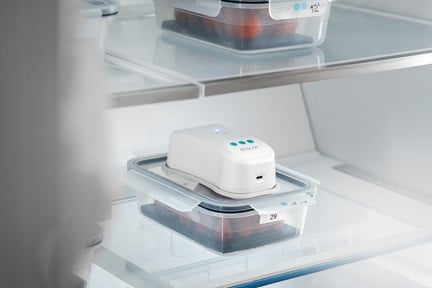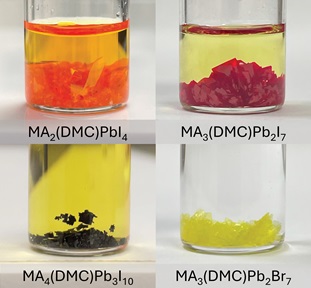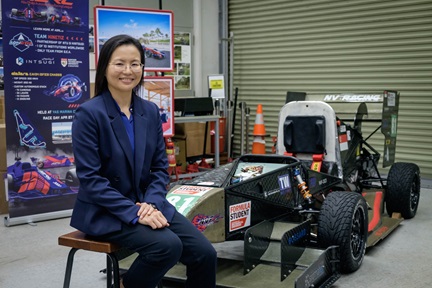Movement matters
Aided by a robust set of physical movement data, researchers from the Rehabilitation Research Institute of Singapore (RRIS) are developing technology-driven solutions to improve patient care.

While life expectancy has increased in the last decade, those added years are sometimes marred by disease and disability. Whether due to injury, illnesses or the body’s natural wear and tear, the elderly are especially vulnerable to potentially immobilising conditions like stroke and knee osteoarthritis.
Taking care of its rapidly ageing citizenry is thus a high priority for Singapore, where the elderly made up 15% of the nation’s population in 2020, up from 9% a decade before. This requires a fundamental shift towards health promotion and disease prevention.
Set up to proactively address these needs, the Rehabilitation Research Institute of Singapore (RRIS) is developing data-driven and patient-centric approaches in healthcare that prioritise quality of care.
Founded by NTU, Singapore’s Agency for Science, Technology and Research, and Singapore’s National Healthcare Group, RRIS seeks to achieve this through tripartite collaboration. Accordingly, its projects are led by pairing clinicians, scientists and technical experts as co-principal investigators. This multidisciplinary approach is also reflected in the interrelated scope of the Institute’s three main research pillars of precision rehabilitation, ability data and assisted ability.
In alignment with Singapore’s Research, Innovation and Enterprise (RIE) 2025 research plan, RRIS aims to build on its expertise to do more in the area of advancing human potential. For example, the Institute plans to expand its capabilities in precision medicine to enable it to use data in a confidential and secure manner, ultimately helping to achieve optimum patient outcomes and quality care.
Data-driven rehabilitation
Whatever the research focus, data lies at the heart of better clinical decision-making and patient welfare at RRIS. “With our data-driven approach, we harness opportunities to bring more objectivity to the practice of medicine,” says RRIS’ Executive Director Assoc Prof Ang Wei Tech of NTU’s School of Mechanical and Aerospace Engineering.
“There are situations where the data can show potential clinical problems that the human eye cannot see.”
Case in point: The precision rehabilitation research group discovered that a patient who had a lower leg amputated was at high risk of developing osteoarthritis in the other knee—to the point that the other leg was likely to become a problem later on.
“This was only identified with our computer-simulated rehabilitation platform as the patient’s movement pattern looked completely normal to the human eye,” Assoc Prof Ang shares.
The ability to extract insights from patient data is key in precision medicine, where different interventions are selected according to each patient ’s unique needs. But doing away with traditional one-size-fits-all approaches first requires gathering the relevant health data.
As knowledge gaps remain in rehabilitation science, RRIS’ ability data team is building a database on normal patient movements. While participants perform tasks, the researchers capture motion data, checking how they pull an object or lift their arms, and measuring the force exerted, for instance, the impact of each step taken when walking. At the same time, sensing technology worn by patients allows for continuous physiological monitoring, helping to enhance the clinical assessment of motor dysfunction. With this data, clinicians will have deeper insights into individuals with movement impairments or those who may be on the verge of developing a neuromuscular condition.
“At RRIS, we are seeking to reimagine treatment strategy by transiting from subjective to objective methodology through big data analytics. An in-depth understanding of improvement or deterioration along the modelled trajectory of recovery will play a major role in early diagnosis, opening doors to more effective and less invasive treatment resulting in lower healthcare costs,” Assoc Prof Ang adds.
Adapting to every patient's need
to protect against injury and pave the way for a fast yet safe return to work for recovering patients. Through wearable devices and smart sensors, the platform matches individuals with tasks that their physical conditions can handle.
The mobile robotic balance assistant invented by RRIS’ intelligent assistive technology arm is designed for disabled patients and the elderly to become independently mobile. In addition to being a motorised wheelchair, it is a walking support system that improves mobility safely and comfortably by intervening only when there is a risk of falling.
hospital. It is a life-changing solution, he adds, encouraging people to walk and engage in everyday tasks independently. Such physical activity brings patients a host of medical benefits from better blood circulation to stronger bones—and even improved mental wellbeing.
Recognising that health goes beyond the physical to encompass psychological aspects as well, the psychosocial rehabilitation and quality of life group is taking a deep dive into the emotional and social experiences of stroke survivors. Nearly 4% of Singapore’s resident population have experienced a stroke in the past, making it the leading cause of serious long-term disability in adults. As the population ages, the burden of stroke is set to rise even further.
A major stroke can cause a loss of mobility, speech and cognitive functions, severely disrupting the daily lives of patients. But if patients feel empowered, the researchers hope they will cope better with both physical and psychological strains, as well as reintegrate more easily with their communities.
“The ultimate goal is to establish an evidence-based and culture-specific curriculum of supportive interventions to address their total rehabilitation and caregiving needs,” Assoc Prof Ang explains.
Strengthening partnerships
Delivering these rehabilitation solutions requires an integrated ecosystem that bridges academia, clinical practice and industry. “RRIS is open to working with industry partners to commercialise RRIS’ intellectual property and to boost the medico-technical capabilities of Singapore’s small and medium-sized enterprises,” says Assoc Prof Ang.
The Institute also hosts a number of outreach and educational activities, including an annual student innovation competition to stimulate youth interest in advancing rehabilitation medicine and providing better care for elderly and vulnerable populations.
healthcare to enhance long-term quality of life,” says Assoc Prof Ang.
The article appeared first in NTU's research & innovation magazine Pushing Frontiers (issue #19, August 2021).




.tmb-listing.jpg?Culture=en&sfvrsn=29c7e020_1)
.tmb-listing.jpg?Culture=en&sfvrsn=55153609_1)

